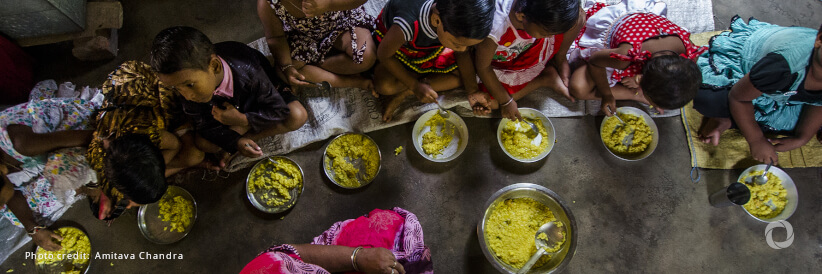As international institutions strive for lasting solutions to address global food insecurity, ”over 280 million people in Africa are facing a food crisis and hunger,” according to the United Nations. This is attributable to factors such as the severity of climate change, the ongoing conflict between Russia and Ukraine, and the devasting impact of the COVID-19 pandemic.
Africa, as a continent, hosts 27 out of the 57 Islamic Development Bank (IsDB) Group member countries. In this context, addressing the food crisis and achieving food security are of significant interest and concern to the IsDB Group. This article examines the Bank’s role, effectiveness, and efficiency in its journey to supporting member countries on the continent to mitigate the impact of the global food crisis.
In July 2022, the IsDB Group endorsed a $10.54 billion comprehensive Food Security Response Program (FSRP) package to support its member countries in addressing the ongoing food crisis and, most importantly, scale up the Group’s continued efforts to contribute to strengthening its members’ resilience to food security shocks in the future.
At a recent food security conference hosted in the Senegalese capital, Dakar, in January this year, “Africa Food Summit Dakar 2“, the IsDB President and Group Chairman, H.E. Dr. Muhammad Al Jasser, reaffirmed strong support for the development of the agriculture sector in Africa while presenting a detailed account of the IsDB Group’s development interventions in the continent, especially pertaining to agriculture, food security, health, and rural empowerment. He emphasized to the global audience that the Group had financed more than $20 billion in agricultural projects, pointing out that $11 billion of these projects are in Africa. The President further announced that the IsDB Group was looking forward to financing more than $7 billion in Africa in the next five years.
Experts believe that such massive investment and solid commitment from the Bank’s Group presents a huge opportunity and is indeed laying the groundwork for a comprehensive response that can stave off the adverse effects on the continent and reverse the negative impact of food insecurity in the region, especially for IsDB member countries.
The efficiency of this response hinge on reaching the vulnerable, most disadvantaged, and hard-to-reach communities and bringing about tangible change in their access to affordable food and essential social services.
Dr. Mansur Muhtar, the IsDB Vice President of Operations declared that they have been working meticulously to reduce the negative impact of food insecurity on the people and to develop the structures that will lead to sustainable and resilient food production systems in the region.
“We have been actively involved in the agriculture sector in Africa, trying to support improvements in agricultural productivity and enhance access to markets and technology.” He stressed.
The banks’ interventions in agriculture have received renewed impetus following the Russia-Ukraine crisis, which has accentuated the food insecurity situation in Africa. Dr. Muhtar explained that, from an operational level, they have articulated policies on agriculture and nutrition. The Bank Group’s Food Security Response Programme of $10.5 billion is the principal instrument for addressing global food insecurity and strengthening agricultural production systems. The bulk of this amount will be directed toward new lending and accelerated disbursement of the existing portfolio. A significant component (about $4.5 billion) is also geared towards meeting emergency food import needs, while about $270 million will support the private sector interventions.
Elaborating further, Dr. Muhtar indicated that the general essence of the program would be providing emergency food supplies, inputs, and fertilizer to those who need them the most in the short term. The Bank aims to help its member countries in sub-Saharan Africa build resilient local production systems that will lead to sustainable food systems.
In the medium to long term, the Bank will seek to address the structural problems of the agricultural sector. To achieve this, the Bank will focus its investment in three main areas: (1) building resilience and climate-smart agriculture that enhance agricultural productivity and food security; 2) improving smallholder farmers’ access to remunerative markets; and 3) optimizing agriculture and commodity value chains (both crops and livestock) with private sector participation, particularly small and medium-sized agro-enterprises.
At the start of 2023, the overall progress of the IsDB Group-level approvals stood at $ 1412.01 million, which is 15% of the total approval commitment by the IsDB Group over the next 3 to 5 years. Of this amount, $ 578.56m was approved by IsDB, ISFD approved $ 4.25m, $630.2m by ITFC, and $ 40m by ICD. In addition, $159 million worth of business is insured by ICIEC. The projects included $ 5.54 million in the Gambia that will contribute towards the growth of Gambia’s groundnut sector; 5 projects worth $4.25 million in the Gambia, Senegal, Niger, Mali, and Guinea that will improve smallholder agricultural productivity through better management of their soils; and an $ 8.77 million project in Burkina Faso on the Integrated Agriculture Value Chain, among others.
Additionally, the Bank is processing a $40 million food security project in Nigeria that will support and strengthen the agricultural production system by increasing productivity, enhancing access to services and production infrastructure, strengthening rural institutions, and improving the information available for decision support.
The project is aligned with the FSRP medium-long term track of Building Resilient Food Supply Systems. It is also processing the construction of Field Silos in Egypt. ITFC has approved total operations worth $ 630.0m in favor of Egypt ($ 292m), Burkina Faso ($ 128.2m), and Senegal (EUR 80m); ICIEC’s total contribution reached $159m so far, including Agriculture Modernization Projects for $ 48m in Uganda, Import of wheat for $ 22m by Senegal, among others.

